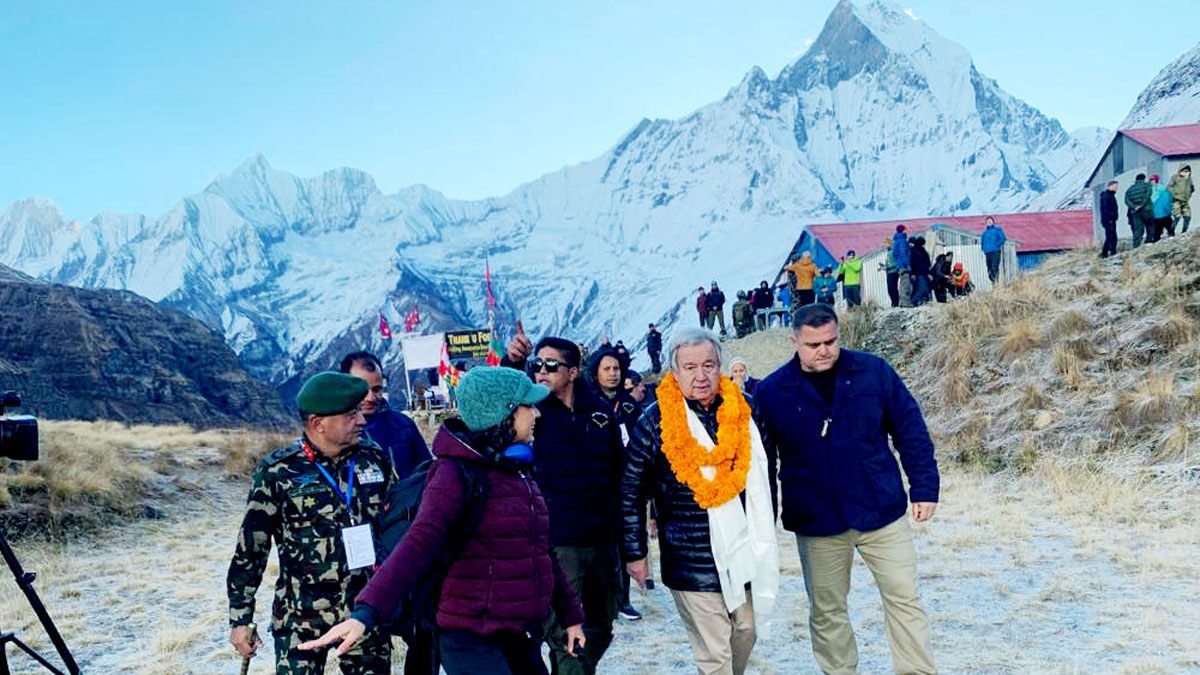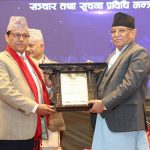
Balancing Acts: Antonio Guterres’ Leadership Amidst Global Turmoil

United Nations Secretary-General Antonio Guterres, in his recent address at the Global Climate Change Conference (COP28), highlighted the interconnected crises faced by regions like Antarctica and Nepal due to the alarming disappearance of polar ice and glaciers. His observations underscored the urgent need for global collaboration to address the impacts of climate change.
During his visit to Nepal, Guterres exhibited a deep affinity for the country, exploring iconic sites like the Sagarmatha Base Camp, Annapurna Base Camp, and Lumbini, the birthplace of Shakyamuni Buddha. His engagement in a high-level roundtable discussion, themed ‘Call of Mountains: Who saves us from the climate crisis,’ chaired by Prime Minister Pushpa Kamal Dahal, reflected his genuine concern for the plight of mountainous nations.
Expressing distress over the rapid melting of Nepal’s mountains, Guterres emphasized the country’s vulnerability to a crisis not of its making. The loss of nearly a third of Nepal’s ice over three decades has resulted in severe consequences, including flooding and the displacement of communities. Guterres urged developed nations to support vulnerable countries like Nepal through climate funds and the pursuit of climate justice, marking a significant acknowledgment on the global stage.
In a separate development, Secretary-General Guterres invoked Article 99 of the UN Charter, a rarely used provision, to address the escalating situation between Israel and Hamas. This marked a historic moment, as Guterres underscored the UN’s role in intervening in humanitarian crises that pose threats to international peace and security.
In a letter to the Security Council, Guterres cited the “appalling human suffering” in Israel and the Occupied Palestinian Territory as grounds for invoking Article 99. This decisive action, the first of its kind during Guterres’ tenure, emphasized the UN’s commitment to upholding human rights and addressing collective trauma in crisis situations. The move demonstrated the UN’s relevance and capacity to intervene effectively.
Despite longstanding debates about the UN’s effectiveness, Guterres’ leadership has showcased a balanced and nuanced approach. His ability to navigate between the expectations of developed nations, which often fund the UN, and independent interventions when necessary has reinforced the organization’s integrity. Guterres’ leadership style has contributed to the UN’s continued relevance in a rapidly changing world, affirming its crucial role in addressing global challenges.













Comments